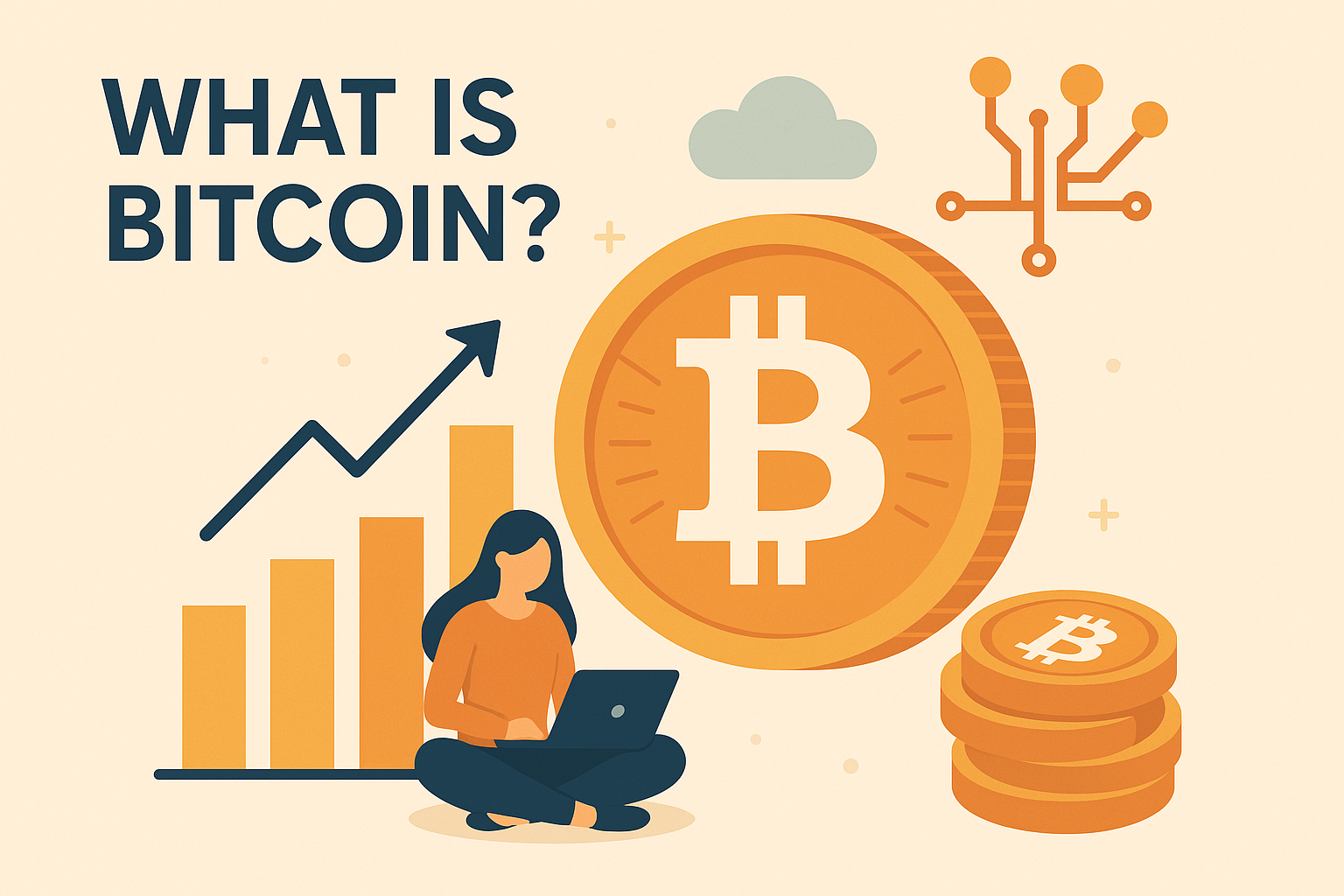What is Bitcoin?
Bitcoin is a term that has become synonymous with the digital revolution in finance. From mainstream media headlines to coffee shop conversations, this revolutionary cryptocurrency has been at the center of economic and technological discussions for over a decade. But what exactly is Bitcoin, and why does it matter?
Understanding Bitcoin: A Brief Overview
Bitcoin is a decentralized digital currency created in 2009 by an anonymous person or group of people using the pseudonym Satoshi Nakamoto. Unlike traditional currencies issued by governments and central banks, Bitcoin operates on a peer-to-peer network, enabling users to send and receive payments without the need for intermediaries like banks.
At its core, Bitcoin is built on blockchain technology — a public, distributed ledger that records all transactions in a secure and immutable way. Each block in the chain contains a list of transactions, and once a block is filled, it is added to the chain in a way that is virtually tamper-proof.
Why Was Bitcoin Created?
Bitcoin was introduced in the aftermath of the 2008 global financial crisis. Its creation was driven by the desire to develop a financial system that is not subject to the control of centralized authorities or vulnerable to human error and corruption. In the Bitcoin white paper, Nakamoto outlined a vision for a system where transactions could occur securely between two parties without needing a trusted third party.
How Does Bitcoin Work?
To understand how Bitcoin works, it helps to break it down into key components:
1. Blockchain Technology
Bitcoin’s blockchain is maintained by a network of nodes — computers that validate and store transaction data. Each node has a complete copy of the blockchain, making it extremely difficult for bad actors to manipulate the system.
2. Mining and Consensus
New Bitcoins are created through a process called mining. Miners solve complex cryptographic puzzles to validate transactions and add them to the blockchain. In return, they are rewarded with newly minted Bitcoins and transaction fees.
This process also uses a consensus mechanism known as Proof of Work (PoW), which ensures that all participants agree on the current state of the blockchain.
3. Wallets and Private Keys
Bitcoin users store their cryptocurrency in digital wallets, which can be software-based (online, desktop, or mobile apps) or hardware-based (physical devices). Each wallet contains a pair of cryptographic keys: a public key (your address) and a private key (used to sign transactions). It’s essential to keep your private key secure, as losing it means losing access to your funds.
Bitcoin’s Supply: Digital Gold
One of Bitcoin’s most unique features is its limited supply. Only 21 million Bitcoins will ever exist, making it inherently deflationary compared to traditional fiat currencies. This capped supply has led many to refer to Bitcoin as “digital gold,” a store of value that can hedge against inflation and monetary policy risks.
Advantages of Bitcoin
There are several reasons why Bitcoin has gained popularity:
- Decentralization: No single entity controls the network.
- Transparency: The blockchain is publicly accessible and verifiable.
- Security: Advanced cryptography ensures transaction integrity.
- Accessibility: Anyone with an internet connection can participate.
- Lower Fees: Compared to traditional remittance services.
Challenges and Criticism
Despite its many advantages, Bitcoin is not without its challenges:
- Volatility: Bitcoin’s price can fluctuate dramatically within short periods.
- Scalability: The network can handle a limited number of transactions per second, leading to congestion.
- Environmental Impact: Mining consumes a significant amount of energy, leading to concerns about its carbon footprint.
- Regulatory Uncertainty: Governments worldwide have varied responses to Bitcoin, ranging from full acceptance to outright bans.
Bitcoin as an Investment
Bitcoin has become an attractive asset for investors looking to diversify their portfolios. Often referred to as “digital gold,” it is increasingly seen as a hedge against inflation and economic instability.
Major companies, hedge funds, and even governments have started to explore Bitcoin as part of their financial strategies. Platforms like PayPal and Cash App now allow users to buy, sell, and store Bitcoin, making it more accessible than ever.
The Future of Bitcoin
Bitcoin’s journey is far from over. As it becomes more integrated into the global financial system, innovations like the Lightning Network (which allows faster, cheaper transactions) and increased institutional adoption may help address some of its current limitations.
While it’s impossible to predict the future with certainty, many experts believe Bitcoin will play a central role in the evolution of money, finance, and digital identity.
Conclusion
Bitcoin is much more than just a digital currency — it represents a paradigm shift in how we think about value, trust, and freedom in the digital age. Whether you’re an investor, developer, or simply curious about the future of money, understanding Bitcoin is essential in today’s interconnected world.
As with any financial innovation, it’s important to do your own research and approach with caution. But one thing is certain: Bitcoin is here to stay, and its influence is only growing.




